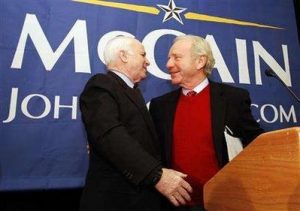
Leaves From The Notebook Of A Tamed Cynic. By Reinhold Niebuhr. First published 1929; reissued Westminster/John Knox Press, 1990. 152 pages. $26.95.
One of the great liberal Protestant theologians of the twentieth century, Reinhold Niebuhr, offers an autobiographical account of his early years as a pastor in Leaves From The Notebook Of A Tamed Cynic. Reinhold (1892-1971), brother to H.R. Niebuhr, contributed enormously to theology, ethics, and political philosophy during his later years as professor at Union Theological Seminary (New York City). Among his many accomplishments, Niebuhr had a hand in bringing German theologian Paul Tillich to America, essentially saving Tillich from the Nazis he had repudiated. However, this book consists of Niebuhr’s journal entries prior to his later fame and accomplishments.
From 1915-1928 Niebuhr was pastor of Beth Evangelical Church in Detroit Michigan. This was the setting for Leaves, wherein germinating thoughts and insights which later came to fruition for Niebuhr were already surfacing in his prodigious mind. As this book is not a systematized work, it is difficult to review. There is no thesis, outline, etc. For this reason and because the nature of autobiographical journaling so requires, I will utilize more quotations in this review than might be expected. Though the book is not systematized, there are some themes which surface throughout the duration of the entries. These themes include topics such as ideology and morality, politics and preaching, war, ministry and anti-intellectualism in the church, evangelicalism and conservativism, liberalism, and importantly, the conflict between the world and the gospel. I will now elucidate and reflect on some of these themes.
Niebuhr opens with a disclaimer of sorts, in his Preface and Apology. Offering an interpretive guide to the readers, we are informed that this book hopes in part to “deal critically with the problems of the modern ministry” (4). One of the most significant problems highlighted is the tension between the modern era (especially in America) and the ideals of Christianity. Industrialized, mechanistic, materialistic values clash against the values Niebuhr believes ministers should preach about. Further, handling Christian ideals can endanger ministers of becoming cynical on the one hand or sentimental on the other. Christian morality can also corrode the minister by flattery and self-righteousness. Niebuhr warns of the importance that Christian ideals be applied to the social problems of each generation, rather than simply discussing empty and inapplicable abstractions. Instead, he wants to be both a prophet and a statesman.
The earliest entries reveal some of the struggles a young man encounters upon entering into ministry. The opening entry illuminates the vibrant mind and refreshing honesty of the young Niebuhr: “There is something ludicrous about a callow young fool like myself standing up to preach a sermon to these good folks. I talk wisely about life and know little about life’s problems – It is easier to speak sagely from the pulpit than to act wisely in the detailed tasks of the parish. A young preacher would do well to be heard more than he is seen” (9-10). Life as minister is something Niebuhr discusses much in this book. One can see his struggles to maintain intellectual integrity in the face of superficiality. For example, he often laments the lack of critical thinking so prevalent in the Church: “What is particularly disquieting to a young man in the ministry is the fact that some of his fine old colleagues make such a virtue of their ignorance. They are sure that there is no Second Isaiah and have never heard that Deuteronomy represents a later development in the law – the ministry is the only profession in which you can make a virtue of ignorance” (17). The struggle for Niebuhr to interact with and form judgments about differing Protestant camps is ubiquitous in this book. He laments the way in which “personal evangelism” focuses on emotionalism, and that recruiting numbers to fill church budgets and pews seems to be its functional purpose: “these ‘personal evangelism’ campaigns mean little more than an ordinary recruiting effort with church membership rather than the Christian life as the real objective. They do not differ greatly from efforts of various clubs as they seek to expand their membership – it is always easy to load up your membership with very immature Christians who will finally set the standard and make it impossible to preach and to teach the gospel in its full implications” (23). Niebuhr also laments the state of church leadership and community, and wants to advance a balanced mean between these extremes. Further, liberalism needs to be integrated with conservativism, and evangelism needs to control its emotionalism and zeal. When discussing a revival he had attended, Niebuhr notes his discouragement over the “lack of intellectual honesty of the average revival preacher – they are always assuming that nothing but an emotional commitment to Christ is needed to save the soul from its sin and chaos. They seem never to realize how many of the miseries of mankind are due not to malice but to misdirected zeal and unbalanced virtue” (45). Further, an entry made towards the end of Niebuhr’s pastorate is profoundly relevant to one of the problematic tendencies of evangelicalism in our day – its recruitment mentality:
Passing one of our big churches today I ran across this significant slogan: “We Will Go Out of Business. When? When Every Man in Detroit Has Been Won to Christ.” Of course it is just a slogan; but the whole weakness of Protestantism is in it; the church goes about the business of winning people to Christ- that is, pulling them through some kind of emotional or social experience. The saddest part about these highly evangelistic churches who put everything into the recruiting task is that they generally tempt those who are already “won” to imagine themselves perfect, or at least “saved.” I know one lawyer in that church who needs to be “won” to several ideas in the gospel of Christ about which he hasn’t the faintest glimmer of light. But he is too sure of himself to get a new idea (143).
The desire to integrate church never left Niebuhr’s entries. At times he seemed most disturbed by the extreme positions of varying sides. To be sure, later works written by Niebuhr deal precisely with this tension. Thus his disdain for the extremes of evangelicalism, conservativism, and liberalism were given equal scrutiny: “liberalism has too little appreciation of the tragedy of life to understand the cross and orthodoxy insists too much upon the absolute uniqueness of the sacrifice of Christ to make the preaching of the cross effective” (70).
The conflict between the standards of the world and those of the gospel is another of Niebuhr’s greatest disturbances frequently discussed in Leaves. The absorption of worldly standards of success into the church was particularly irritating for Niebuhr, partly because these standards were imposed on his ministry. He felt that growing in numbers, meeting and expanding budget, and building bigger churches should not measure the success of ministry. Rather, accurately handling the gospel message and inspiring people are what ministry should focus on. Indeed, this was a problem for both conservative and liberal ministers. Upon visiting a liberal congregation Niebuhr was disheartened by the lead pastor. Though advancing the liberal cause this pastor preached to a congregation that did not challenge his liberal positions. And though this pastor thought of himself as a radical, Niebuhr felt he was more like a charlatan. When asked to support the authentically radical organization to which Niebuhr belonged: “He thought it would not be advisable, considering his heavy responsibilities, to imperil the many great “causes” to which he was devoting his life; I didn’t mind his cowardice so much, though he tried to hide it, as his vanity, which he took no pains to hide. I could just see him cavorting weekly before his great crowd of doting admirers” (53). Case in point, this pastor was highly successful by the standards of success offered by society.
War is another important theme in Leaves, and as Niebuhr wrote these entries between the time of WWI and WWII, there are important advances in his own thought which certainly contributed to his later emphases on politics. For example, Niebuhr laments the way in which chaplains in the war mixed military authority with their service as ministers of the gospel. Further, the difficulty of balancing allegiances and virtues in the face of war is a particular struggle for him. Written at age twenty-six (1918), a particularly insightful entry captures this struggle: “I can see one element in this strange fascination of war which men have not adequately noted. It reduces life to simple terms. The modern man lives in such a complex world that one wonders how his sanity is maintained as well as it is. Every moral virtue, every social situation and every practical problem involves a whole series of conflicting loyalties, and a man may never be quite sure that he is right in giving himself to the one as against the other” (21). Niebuhr struggled intensely with these questions throughout his pastoral career. At times the reader is privy to his changing attitude towards war. In 1923, for example, he records a paradigmatic shift in attitude, determining to be finished forever with the notion of supporting war: “This is as good a time as any to make up my mind that I am done with the war business. The times of man’s ignorance God may wink at, but now he calls us all to repent. I am done with this business. I hope I can make that resolution stick” (42-3). (Niebuhr changed his mind when Hitler came to power, acknowledging the necessity of war in such situations.)
In response to this book, I must emphasize that Niebuhr is pleasantly humble and engagingly reflective. I was impressed on several fronts. For one, Niebuhr is honest about some of the superficiality of life in the ministry. Further, I particularly enjoyed some of Niebuhr’s irony and humor. When discussing some of the superficiality of ministers he knew he often pleasantly tempers his discussion with humility, cynicism and humor. For example, in his closing remarks of the above mentioned “radical” pastor who was unwilling to join Niebuhr’s organization: “Obviously one of his chief difficulties is that he is good looking. A minister has enough temptations to vanity without bearing the moral hazard of a handsome face. If this young fellow had only been half as homely as old Dr. Gordon he might have a chance of acquiring a portion of his grace” (53-4). And again, during the same year, Niebuhr humorously grieves over the materialism of ministry. By offering what Niebuhr felt a salary far too high for a preacher, a church he knew of had secured an “eloquent” preacher: “I don’t know whether that was the factor which finally solved their problem, but at any rate they have the man they want. Of course, “a man must live”, and it is promised that if we seek first the kingdom and its righteousness “all these things shall be added unto us”. But I doubt whether Jesus had a $15,000 salary in mind. If the things that are added become too numerous they distract your attention terribly. To try to keep your eye on the main purpose may only result in making you squint-eyed. I hope the new prophet won’t begin his pastorate with a sermon on the text, “I count all things but loss” (55). Often tempering himself with humility, Niebuhr makes humorous criticisms and then turns around and points the finger back at himself: “I think I ought to repent of the many unkind things I have said about various ministers; after all most of us are conformists in some sense, and it is rather presumptuous on our part to condemn every type of conformity except our own” (141).
The only critical remark I have relates to Niebuhr’s treatment of Catholicism. He is balanced and inclusive, regarding admission that Catholics are every bit as Christian as Protestants. However, at times his comments struck me as a bit too harsh. For example, in comparing the Catholic mass with the Protestant service, he contrasts the two partly by equating the former with “magic”: “When religion renounces magic it finds itself in the poor workaday world trying to discover the glimpses of the eternal in the common scene; let us envy the priest, but pity him too, meanwhile. He has been betrayed by his magic. He has gained too easy a victory over life’s difficulties and he helps his people to find a premature peace. The rivers of life in Protestant religion are easily lost in the sand, but if they really run they carry more life than holy water.” (30). On the other hand, however, I find his criticisms of American culture, American Protestantism and American academia to be highly accurate in our own time. Surely anyone who enjoys autobiographical writings will love this book.
Roy L. Smith
Boston University



